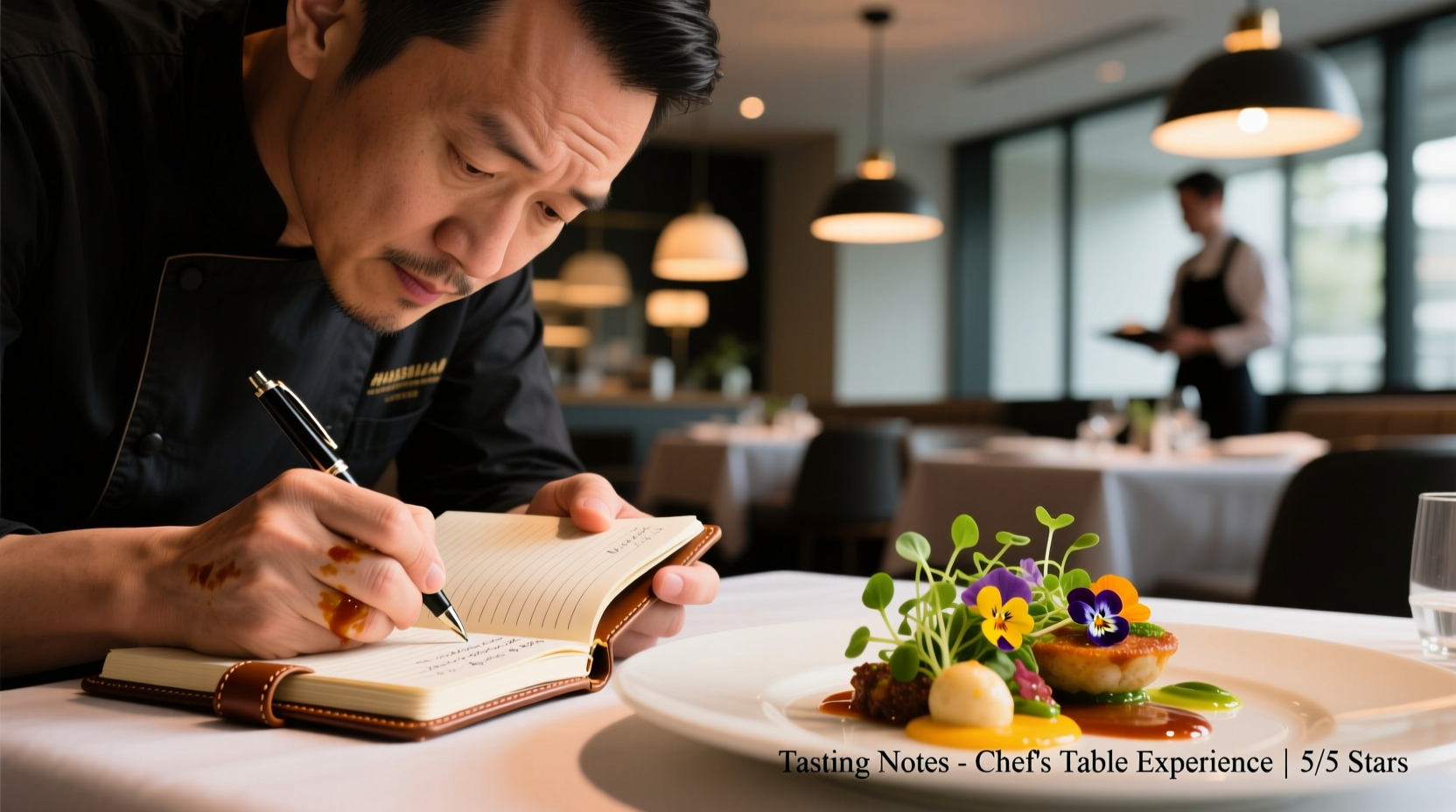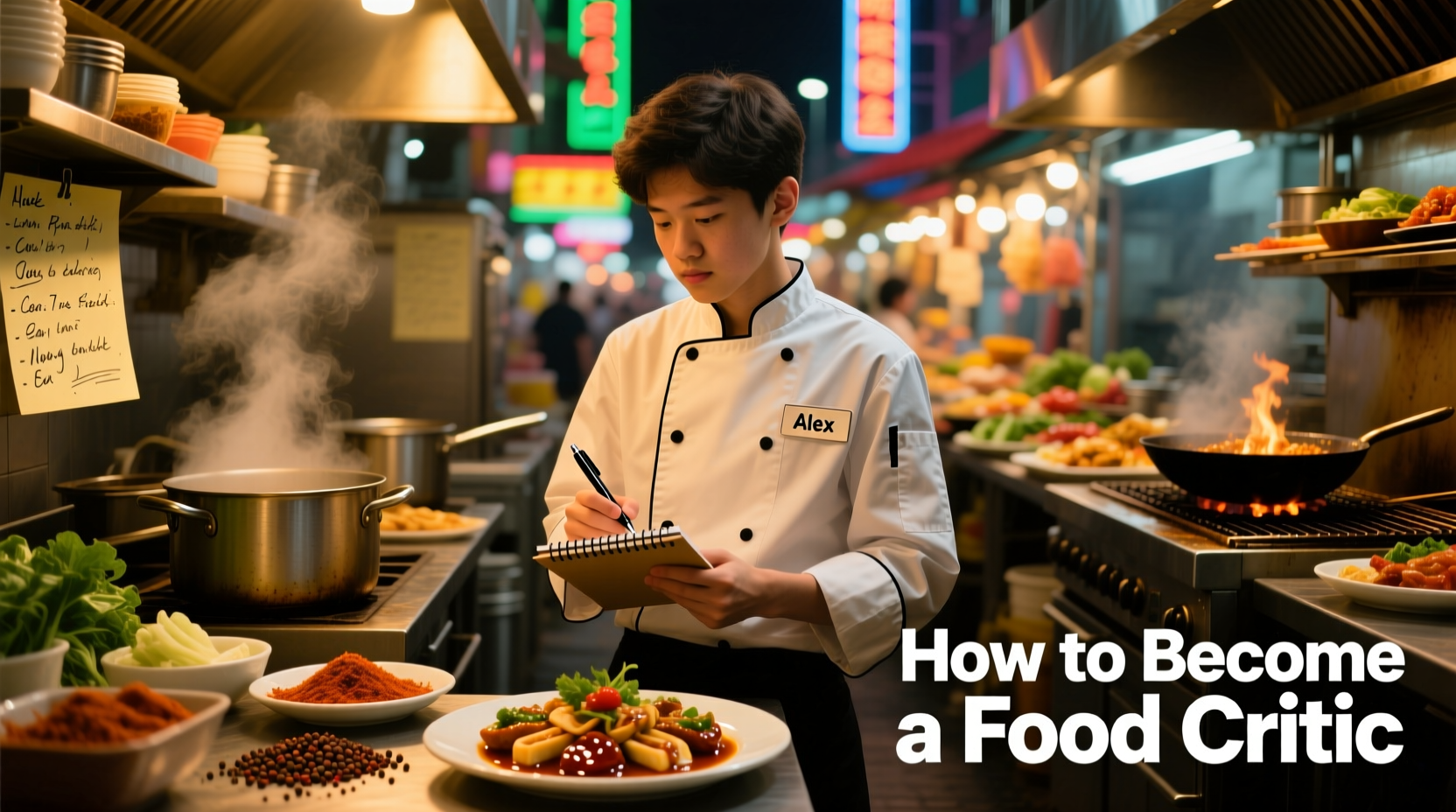Food criticism isn't just about enjoying meals—it's a demanding profession requiring disciplined observation, articulate writing, and cultural understanding. According to the Bureau of Labor Statistics, the journalism field (which includes food critics) employs approximately 44,000 writers and reporters, with experienced critics at major publications earning between $55,000-$95,000 annually. The most successful critics combine sensory expertise with storytelling ability, transforming dining experiences into compelling narratives that guide readers' choices.
Understanding the Food Critic Profession
Before pursuing this career path, understand what food criticism truly entails. Professional critics evaluate restaurants through multiple visits, assessing consistency across service, ambiance, and food quality—not just individual dishes. They consider cultural context, ingredient sourcing, and culinary innovation while maintaining objectivity. Unlike casual reviewers, professional critics follow strict ethical guidelines, typically paying for all meals anonymously to ensure unbiased assessments.
Modern food critics operate across multiple platforms—newspapers, magazines, digital publications, podcasts, and television. While traditional newspaper critic roles have declined, digital opportunities have expanded significantly. Successful critics today often build multimedia portfolios, combining written reviews with video content and social media engagement.
Essential Skills Development Pathway
Developing the core competencies of food criticism requires focused effort across several areas:
Tasting and Sensory Evaluation
Mastering sensory analysis is fundamental. Professional critics train to identify subtle flavor components, texture variations, and cooking technique nuances. Consider structured palate development through:
- Systematic tasting exercises focusing on single ingredients
- Blind tasting practice to eliminate bias
- Learning professional tasting terminology
- Understanding flavor chemistry and ingredient interactions

Writing and Communication Excellence
Exceptional writing skills separate professional critics from amateur reviewers. Study the work of respected critics like Pete Wells (The New York Times) and Kwame Onwuachi to understand effective food writing techniques. Focus on developing:
- Vivid descriptive language that engages multiple senses
- Clear structure that guides readers through the dining experience
- Balanced critique that acknowledges both strengths and weaknesses
- Contextual understanding of culinary traditions and innovations
Educational Foundation and Professional Development
While no single educational path exists for food critics, certain backgrounds provide significant advantages:
| Educational Path | Benefits | Time Investment |
|---|---|---|
| Culinary School | Technical cooking knowledge, understanding of kitchen operations | 6-24 months |
| Journalism Degree | Writing fundamentals, editorial standards, media ethics | 2-4 years |
| Self-Directed Study | Flexible learning, practical experience through writing | Ongoing |
| Food-Specific Certifications | Credibility in specialized areas (wine, cheese, etc.) | 3-12 months |
Building Your Professional Foundation
Success as a food critic depends on systematic development of your expertise:
Create a Tasting Journal System
Professional critics maintain detailed tasting records. Document each dining experience with structured notes covering:
- Ingredient identification and quality assessment
- Cooking technique analysis
- Flavor balance and composition
- Menu coherence and concept execution
- Service and ambiance evaluation
Develop Cultural and Historical Context
Exceptional food criticism connects dishes to broader culinary traditions. Study:
- Regional cooking techniques and their historical development
- Ingredient provenance and seasonal availability
- Cultural significance of dishes and dining customs
- Contemporary culinary trends and their origins
Creating Your Professional Portfolio
Your portfolio demonstrates your capabilities to potential employers. Start building yours immediately:
Launch Your Own Platform
Begin with a dedicated food blog or social media channel focused on thoughtful, detailed reviews. Quality matters more than quantity—three exceptional, well-researched reviews demonstrate more capability than thirty superficial posts. Ensure your writing shows:
- Consistent analytical framework
- Distinctive voice and perspective
- Technical understanding of culinary concepts
- Ethical transparency about review conditions
Pitch to Existing Publications
Once you've established some writing samples, approach local publications with targeted pitches. Start with neighborhood blogs or community newspapers before aiming for major outlets. Successful pitches should demonstrate:
- Understanding of the publication's audience and style
- Unique angle on restaurant coverage
- Professionalism in communication
- Evidence of thorough research
Networking Within the Culinary Industry
Strategic relationship building opens doors in food criticism:
Professional Organizations Worth Joining
The Association of Food Journalists offers resources specifically for food writers, including mentorship programs and industry connections. Membership provides access to press events, networking opportunities, and professional development resources that build credibility. Similarly, the James Beard Foundation's media events connect emerging writers with established industry figures.
Attending Industry Events
Participate in culinary conferences, food festivals, and chef demonstrations. When attending these events, focus on building genuine relationships rather than immediate professional gain. Many successful critics began by contributing to event coverage for small publications before advancing to regular critic roles.
Navigating Ethical Considerations
Maintaining integrity is non-negotiable in food criticism:
- Always pay for meals when reviewing professional establishments
- Disclose any potential conflicts of interest transparently
- Maintain anonymity during review visits to ensure unbiased service
- Be consistent in evaluation standards across all reviewed establishments
- Provide constructive criticism that helps restaurants improve
According to industry standards documented by the Association of Food Journalists, ethical food critics avoid accepting complimentary meals from establishments they might review and maintain clear separation between advertising and editorial content.
Realistic Career Progression Timeline
Building a sustainable career as a food critic typically follows this progression:
- Months 1-6: Develop tasting skills and writing abilities through structured practice
- Months 6-12: Establish online presence with consistent, high-quality reviews
- Year 1-2: Secure freelance writing opportunities with local publications
- Year 2-3: Build specialized expertise in particular cuisine types or regions
- Year 3-5: Transition to regular critic position with established publication
Remember that food criticism remains a competitive field. Persistence, continuous skill development, and authentic passion for culinary arts separate successful critics from casual reviewers. The most respected critics view their role as culinary educators who help readers understand and appreciate food culture at a deeper level.











 浙公网安备
33010002000092号
浙公网安备
33010002000092号 浙B2-20120091-4
浙B2-20120091-4